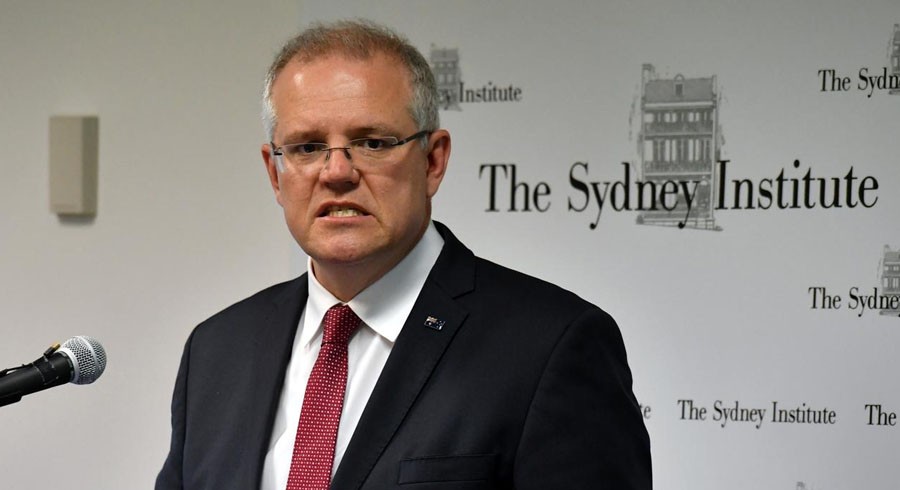Morrison waded into the debate in a radio interview with conservative pundit Alan Jones
 PHOTO: Reuters
PHOTO: Reuters
Cricket Australia (CA) have come under fire for a new policy aimed at making the sport inclusive for transgender and gender diverse players, with Prime Minister Scott Morrison describing it as "heavy-handed" and "mystifying" on Friday.
CA issued two policies on Thursday, one setting out the rules for "Elite" cricket, which they said was closely aligned with the 2017 International Cricket Council guidelines, and the other for "Community Cricket".
While the "Elite" policy demands that trans women must reduce their testosterone levels over a 12-month period to compete in women's cricket, the "Community" policy requires only a nomination of a gender identity. There was an immediate backlash on social media with some critics lambasting the governing body for progressive posturing but the majority accusing CA of fundamentally undermining women's sport.
Morrison waded into the debate in a radio interview with conservative pundit Alan Jones on Friday and suggested the mandatory policies were unnecessary, at grassroots level at least.
"I think it's pretty heavy-handed to put it pretty mildly," the prime minister told Sydney radio station 2GB. "I think it's a very sensitive issue. I would need to have Cricket Australia understand that this is a very heavy-handed approach they're taking with local sport, and I think there are far more practical ways to handle these issues than these sort of heavy mandatory ways of doing it. And I'm sure these issues have been quite carefully and practically managed at a club level already, and so why there is that necessity to get the sledgehammer out on this is mystifying me."
CA's policy initiative followed Sport Australia's launch of "Trans and Gender Diverse Inclusion" guidelines for all sports in the country last month. The inclusion of transgender athletes in elite women's sport has become the subject of huge controversy, with critics arguing that being born male gives an unfair physical advantage even after transition.
Advocates for transgender inclusion argue that the process of transition decreases that advantage considerably and that physical differences between athletes inside sex classes mean there is never a truly level playing field in sport.
Transgender weightlifter Laurel Hubbard's gold medal-winning performance for New Zealand in women's events at the Pacific Games in Samoa last month became a lightning rod for criticism of transgender policy in the region.
Hannah Mouncey, an Australian transgender athlete who was part of the consultation process CA carried out in drawing up the policies, said they had set the standard for the governing bodies of professional sport.
"It's quite easily the best in the world at the elite level and I don't think we'll see a better policy come out anywhere," she told the Canberra Times on Thursday. "It's brought together all the best bits of other policies and created one that's specific to cricket. There has to be an elite pathway (for transgender and gender-diverse people), that's something which shouldn't be denied to someone just because they're different."